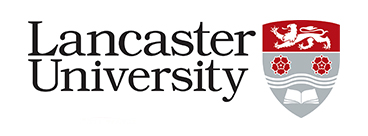University College London伦敦大学学院
2020年QS世界8名
院校特色
伦敦大学学院 (University College London),简称UCL,建校于1826 年,位于英国伦敦,是一所誉满全球的世界名校。UCL 是伦敦大学联盟(University of London,简称UOL)的创校学院,与剑桥大学、牛津大学、帝国理工学院、伦敦政治经济学院并称"G5 超级精英大学"。时至今日,曾就读、曾任职或现任职于UCL 的校友中,共有32 位诺贝尔奖获得者和3 位菲尔兹奖(世界数学最高奖)获得者,此外还不乏政治、科学、文化以及娱乐等多个领域的名人。其中包括人工智能AlphaGo 的创建者戴密斯∙哈萨比斯, “光纤之父” 高锟,“电话通讯之父”及发明家亚历山大∙贝尔,DNA 发现者“生物分子学之父”弗
朗西斯∙克里克,泰戈尔, 圣雄甘地以及日本前首相伊藤博文和小泉纯一郎等。UCL 主校区邻近大英博物馆、大英图书馆、国王十字车站、牛津街、摄政街和摄政公园,坐落于伦敦市中心,因此也使其成为了世界最昂贵的大学之一。 该校在2016-2017 QS 世界大学排名中位列世界第7 名,英国第3 名;2016-17 年ARWU世界大学学术排名中位列世界第17 名,英国第3 名;2016-17 年泰晤士高等教育(Times)世界大学排名位列第15 名,英国第4 名;在由英国官方每7 年发布一次的大学科研水平排名(REF)中,UCL 位列全英第2 名,仅次于牛津大学。
专业:Integrated Machine Learning Systems MSc
Entry requirements入学要求
A minimum of an upper second-class Bachelor's degree in electronic and electrical engineering, computer science, and related fields from a UK university or an overseas qualification of an equivalent standard. Basic knowledge (e.g. at UK 2:1 standard in relevant undergraduate-level modules) of programming languages (such as C, C++, Python, Java, or similar) is required. Basic knowledge of mathematics (e.g. at UK 2:1 standard in relevant undergraduate-level modules) is also required in algebra, analysis, probability, or statistics. Applicants must show an interest in developing thinking and problem-solving skills.
About this degree专业介绍
Students will learn about the principles of data acquisition including the sensors and devices used to capture the data; the principles of data analysis; machine learning technology; and the infrastructure used to transport, store, secure, and process data. Students will therefore also learn how to put together integrated systems that can acquire, process, and analyse data.
The programme encompasses 180 credits. Students undertake six compulsory modules, two optional modules, a compulsory dissertation, and a compulsory non-credit bearing Professional Development Skills module.
The programme consists of six compulsory modules (90 credits), two optional modules (30 credits) and a compulsory dissertation (60 credits). The programme also encompasses a compulsory non-credit bearing Professional Development Skills module.
Upon successful completion of 180 credits, you will be awarded a MSc in Integrated Machine Learning Systems.
Please note that the list of modules given here is indicative. This information is published a long time in advance of enrolment and module content and availability is subject to change.
Module descriptions课程描述
Applied Machine Learning Systems II (AMLS-II)
This module will cover advanced principles and practice of machine learning systems engineering, including deep learning, deep reinforcement learning, generative adversarial networks, and future directions in machine learning engineering. The module will also encompass Lab sessions – based on programming languages/platforms such as Python or R or tensorflow – so that students can learn how to apply machine learning technology to address various advanced machine learning tasks.
Data Acquisition and Processing Systems (DPS)
This module will cover technology, principles and applications of signal acquisition, compression, and processing systems. In particular, the module will cover a wide range of topics such as sampling theory and practice, analogue-to-digital and digital-to-analogue converters technology, compressive sensing, signal processing principles, image and video processing, and Hardware architectures for data processing.
The module will also encompass lectures as well as lab sessions so that students can learn how to apply the underlying principles to address problems in the area of signal, image and video acquisition, compression, analysis and processing.
Cloud, Data Centres and Edge-Computing
Data centres and edge-computing form the backbone of Cloud systems. Data centres can grow to warehouse-scale computers formed of hundreds of thousands of servers running most of our online services and applications. Meanwhile edge-computing is aiming at performing data processing at the edge of the networks, near the source of the data to support latency sensitive applications and supports a wide range of technologies.
This module will provide fundamental technical details on how to design a Data Centre network from switch technologies and architectures, to network protocols, topologies and interconnects while delving into advance solutions for future systems. Furthermore, the module will use technical research papers from recent years in top venues to the topics of edge computing as well as hands-on python based labs to simulate edge-computing systems.
Security and Privacy (SP)
This module will cover the design, the development and the evaluation of secure computer systems & networks. In particular, it will be focused on security/privacy challenges in a "Big Data" world.
It will also pay particular attention to new and emerging technologies, such as Blockchains and Distributed Ledger Technologies, which hold significant promise in terms of security and privacy. The module will also encompass Lab sessions so that students can learn how to implement/test secure networks.
Seminar in ‘Emerging Topics in Integrated Machine Learning Systems’
This module consists of a series of weekly seminars delivered by high-profile academics, industrialists, or other stakeholders in machine learning technology to expose students to the most cutting-edge topics in the field, including recent advances in machine learning theory, algorithms, and applications, as well as issues such as privacy, fairness and ethics in artificial intelligence. Each student will be required to maintain an up-to-date blog reporting the state-of-the-art in key topics.
Optional modules选修模块
Students undertake two out of the three following optional modules:
Internet of Things
Internet Multimedia Systems
Introduction to Internet Protocol Networks
Optional modules are also complemented by a compulsory non-credit bearing Professional Development Skills module that will deliver students research, writing, and presentation skills.
Careers职业走向
It is expected that this MSc will deliver professionals in the general field of integrated machine learning systems engineering that can be recruited by the burgeoning industry in the area, such as emerging start-ups or well-established companies that need to recruit engineers with the necessary skills to set-up systems to make sense of data.
It is also expected that this MSc will deliver researchers that are well positioned to continue further doctoral studies.
Employability
Students will acquire a wide range of theoretical and practical knowledge and skills in the general area of integrated machine learning systems, including in data acquisition, data analysis, and the infrastructure used to transport, store, secure and process data.
In particular, students will be exposed both to the principles and practice of machine learning systems, including the hardware, software and network components underpinning such systems.
Students will therefore be well positioned to pursue a wide range of careers in industry or academia upon completion of this programme.
Why study this degree at UCL?院校特色
This MSc programme offers students a holistic view about machine learning technology, encompassing both the principles and practice of data aquisition, data analysis, and the infrastructure used to transport, store, secure and process data.
This MSc programme also offers students a wide range of hardware, software, and system skills, allowing them to develop upcoming machine learning systems supporting our economies and societies.
This MSc programme is delivered by world-leading academics in their respective fields, and is supported by state-of-the-art facilities and laboratories at the Electronic and Electrical Engineering Department at UCL.
Overseas: £28,530 (FT)
Standard level: Overall grade of 6.5 with a minimum of 6.0 in each of the subtests.
专业:Nanotechnology MSc
This MSc is designed for graduates from the physical sciences and relevant engineering disciplines who wish to develop skills in this new and exciting area. Nanotechnology is rapidly establishing itself as a key technology, in industries ranging from microelectronics to healthcare, with a consequent demand for appropriately trained graduates.
About this degree课程介绍
The programme introduces students to, and provides training in, the skills essential for almost all fields of nanotechnology research, including key laboratory skills and techniques in planning, building devices, analysis, and results comparison. The core lecture programme covers essential topics in physics, electrical and electronic engineering, and biology.
Students undertake modules to the value of 180 credits.
The programme consists of six core modules (75 credits), three optional modules (45 credits) and a research project (60 credits).
A Postgraduate Diploma (120 credits) is offered. The diploma consists of six core modules (75 credits) and three optional modules (45 credits).
Upon successful completion of 180 credits, you will be awarded a MSc in Nanotechnology. Upon successful completion of 120 credits, you will be awarded a PG Dip in Nanotechnology.
Please note that the list of modules given here is indicative. This information is published a long time in advance of enrolment and module content and availability is subject to change.
Compulsory modules课程模块
Physical Science for Nanotechnology
Nanoscale Processing and Characterisation for Advanced Devices
Experimental Techniques for Nanotechnology
Nanotechnology and Society
Electrical Transport in Nanosystems
Photonics in Nanosystems
Optional modules
Quantum Computation and Communication
Order and Excitations in Condensed Matter
Molecular Biophysics
Molecular Physics
Entrepreneurship: Theory and Practice
Bioprocess Microfluidics
Physics of Advanced Materials
Physics and Optics of Nanostructures
Materials and Energy Materials
Please refer to the Electronic and Electrical Engineering department page for further information on modules.
专业:Wireless and Optical Communications MSc
This MSc covers the key technologies required for the physical layer of broadband communications systems. The programme unites concepts across both radio and optical communication to give students a better understanding of the technical challenges they will face in engineering the rapid development of the broadband communications infrastructure. There is exceptionally strong industry demand for engineers with this skill base.
About this degree专业介绍
This MSc provides training in the key technologies required for the physical layer of photonic, wireless and wired communications systems and other applications of this technology, ranging from THz imaging to radar systems. The programme encompasses the complete system design from device fabrication and properties through to architectural and functional aspects of the subsystems that are required to design and build complete communication systems.
Students undertake modules to the value of 180 credits.
The programme consists of five core modules (75 credits), three optional modules (45 credits) and a research dissertation (60 credits).
Upon successful completion of 180 credits, you will be awarded a MSc in Wireless and Optical Communicati
Please note that the list of modules given here is indicative. This information is published a long time in advance of enrolment and module content and availability is subject to change.
Compulsory modules课程设置
Introduction to Telecommunications Networks
Wireless Communications Principles
Broadband Communications Laboratory
Communications Systems Modelling
Broadband Technologies and Components
Please note that there are compulsory transferable skills activities associated with this programme, but these are not credit bearing.
Optional modules选修模块
Students choose three of the following:
Advanced Photonic Devices
Antennas and Propagation
Photonic Subsystems
Optical Transmission and Networks
Radar Systems
RF Circuits and Sub-systems
Internet of Things
Mobile Communications Systems
Internet Multimedia Systems
Careers职业走向
Rapid growth of the internet and multimedia communications has led to an unprecedented demand for broadband communication systems. There is exceptionally strong industry demand for engineers with this skills base and a clear shortage of supply. Recent graduates have moved into roles as electrical and technical engineers at companies including Société Générale and Ericsson.
Employability
The programme provides a broad package of knowledge in the areas of wireless and optical communications networks, from devices to signal processing theory and techniques, network architecture, and planning and optimisation. Students are expertly equipped to pursue careers as engineers, consultants and system architects in wireless and optical communications. A considerable number of graduates also stay in the education sector undertaking research and teaching.



















